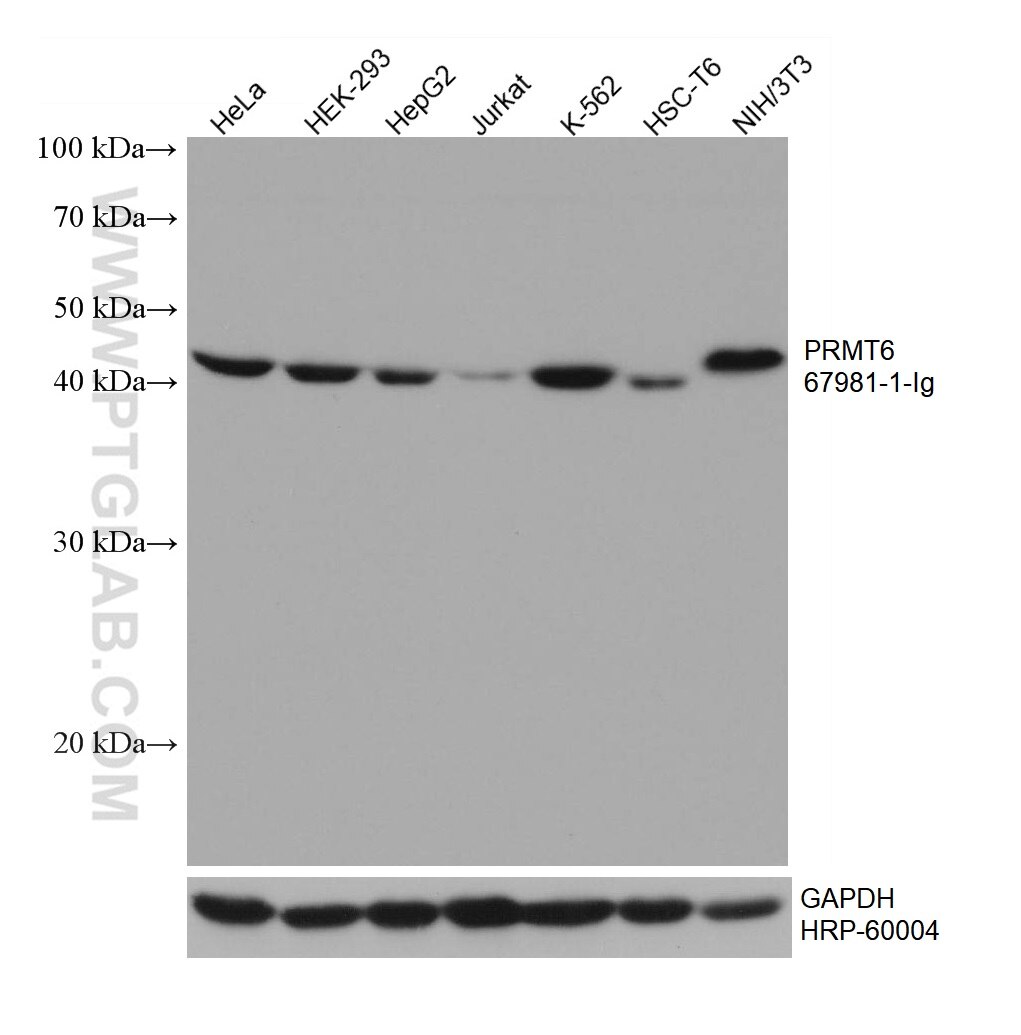Validation Data Gallery
Tested Applications
Recommended dilution
| Application | Dilution |
|---|---|
| It is recommended that this reagent should be titrated in each testing system to obtain optimal results. | |
Product Information
67981-1-PBS targets PRMT6 in WB, Indirect ELISA applications and shows reactivity with Human, Mouse, Rat samples.
| Tested Reactivity | Human, Mouse, Rat |
| Host / Isotype | Mouse / IgG2a |
| Class | Monoclonal |
| Type | Antibody |
| Immunogen | PRMT6 fusion protein Ag7934 相同性解析による交差性が予測される生物種 |
| Full Name | protein arginine methyltransferase 6 |
| Calculated molecular weight | 42 kDa |
| Observed molecular weight | 42 kDa |
| GenBank accession number | BC002729 |
| Gene Symbol | PRMT6 |
| Gene ID (NCBI) | 55170 |
| RRID | AB_2918730 |
| Conjugate | Unconjugated |
| Form | Liquid |
| Purification Method | Protein A purification |
| UNIPROT ID | Q96LA8 |
| Storage Buffer | PBS only , pH 7.3 |
| Storage Conditions | Store at -80°C. |
Background Information
Protein arginine methyltransferase 6 (PRMT6) is a type I PRMT which is involved in epigenetic regulation of gene expression, alternative splicing, development and differentiation, DNA repair, cell proliferation and senescence, DNA methylation, mitosis, inflammation, innate antiviral immunity, spermatogenesis, transactivation of nuclear receptors and cell signaling. The human PRMT6 gene, located on Chromosome 1, encodes for the 41.9 kDa PRMT6 enzyme. PRMT6 is predominantly localized to the nucleus, in stark contrast to PRMT3 and PRMT5 which are preponderantly cytosolic, while other PRMTs are found in both nucleus and cytosol. PRMT6 is expressed in a wide range of tissues with high expression in kidney and testes. PRMT6 generates asymmetric dimethylation modifications in histone 3 at arginine 2, arginine 17 and arginine 42 (H3R2me2a, H3R17me2a and H3R42me2a) and in histone H2A at arginine 26 (H2AR26me2a) and participates in the epigenetic regulation of gene expression.
